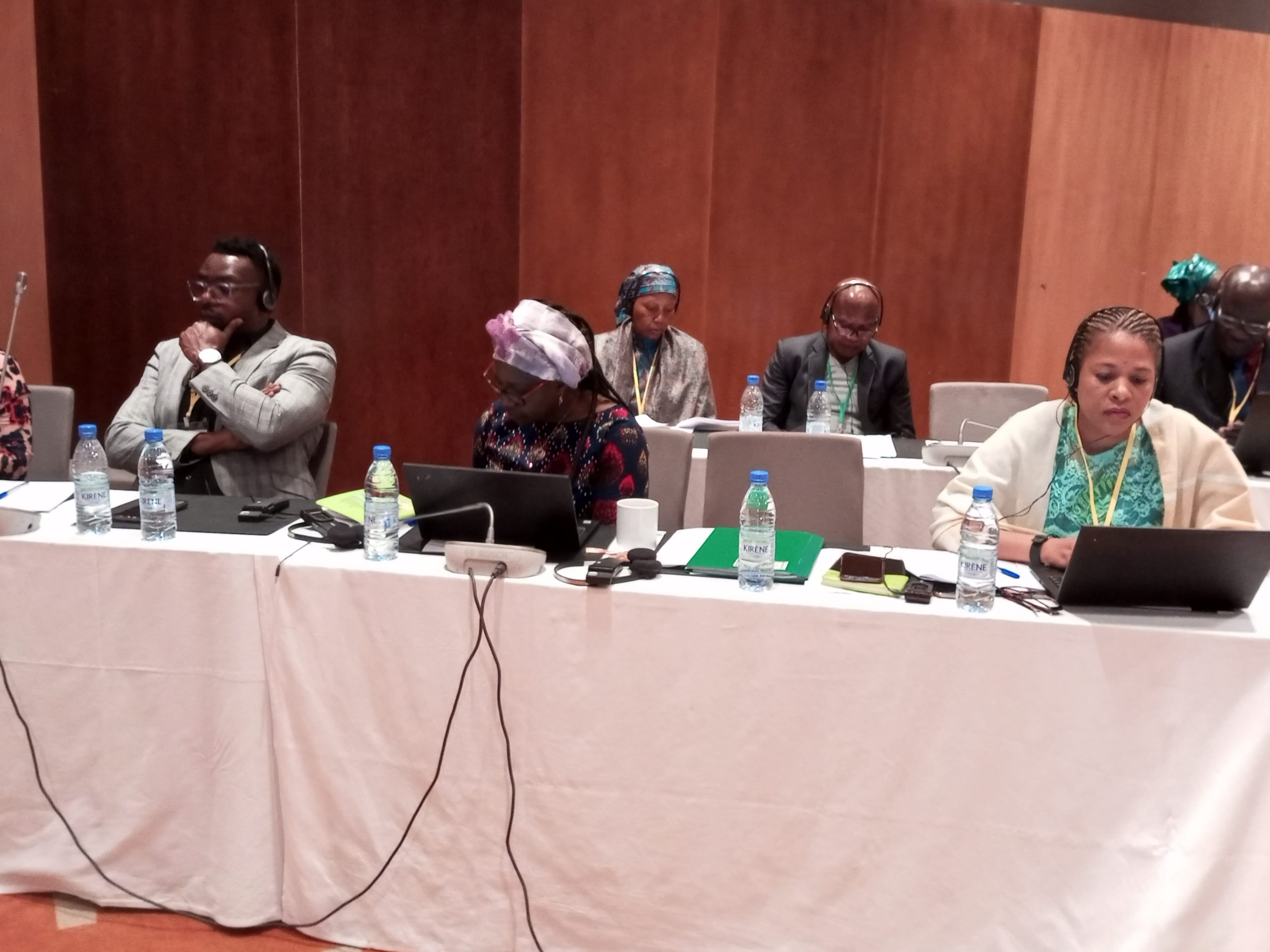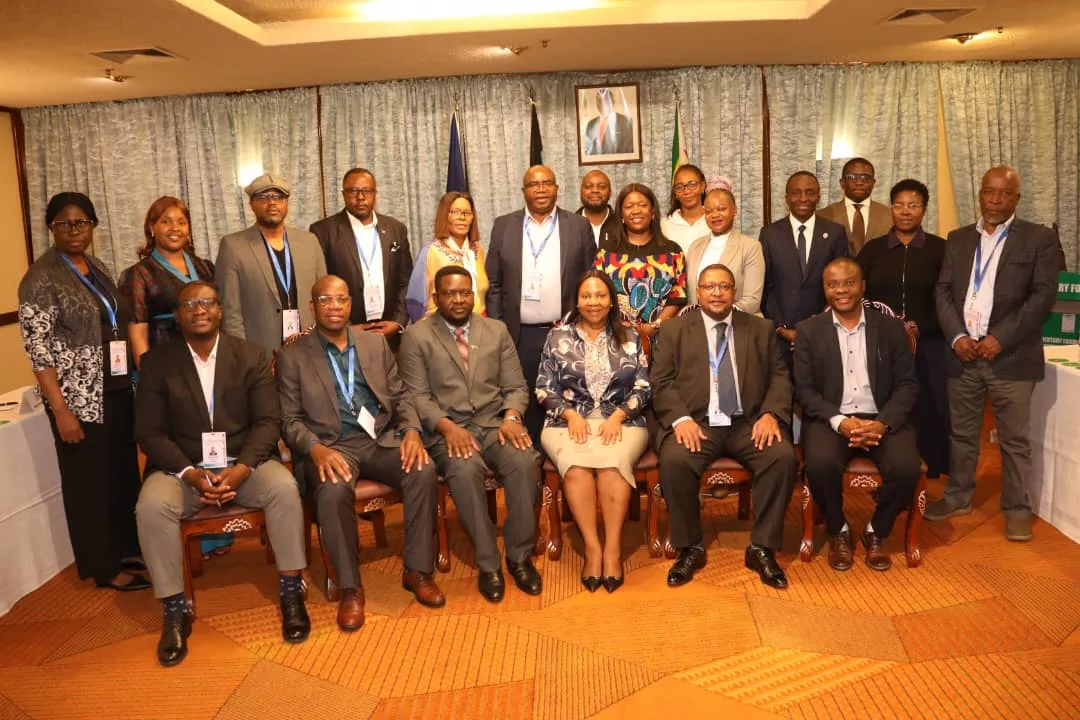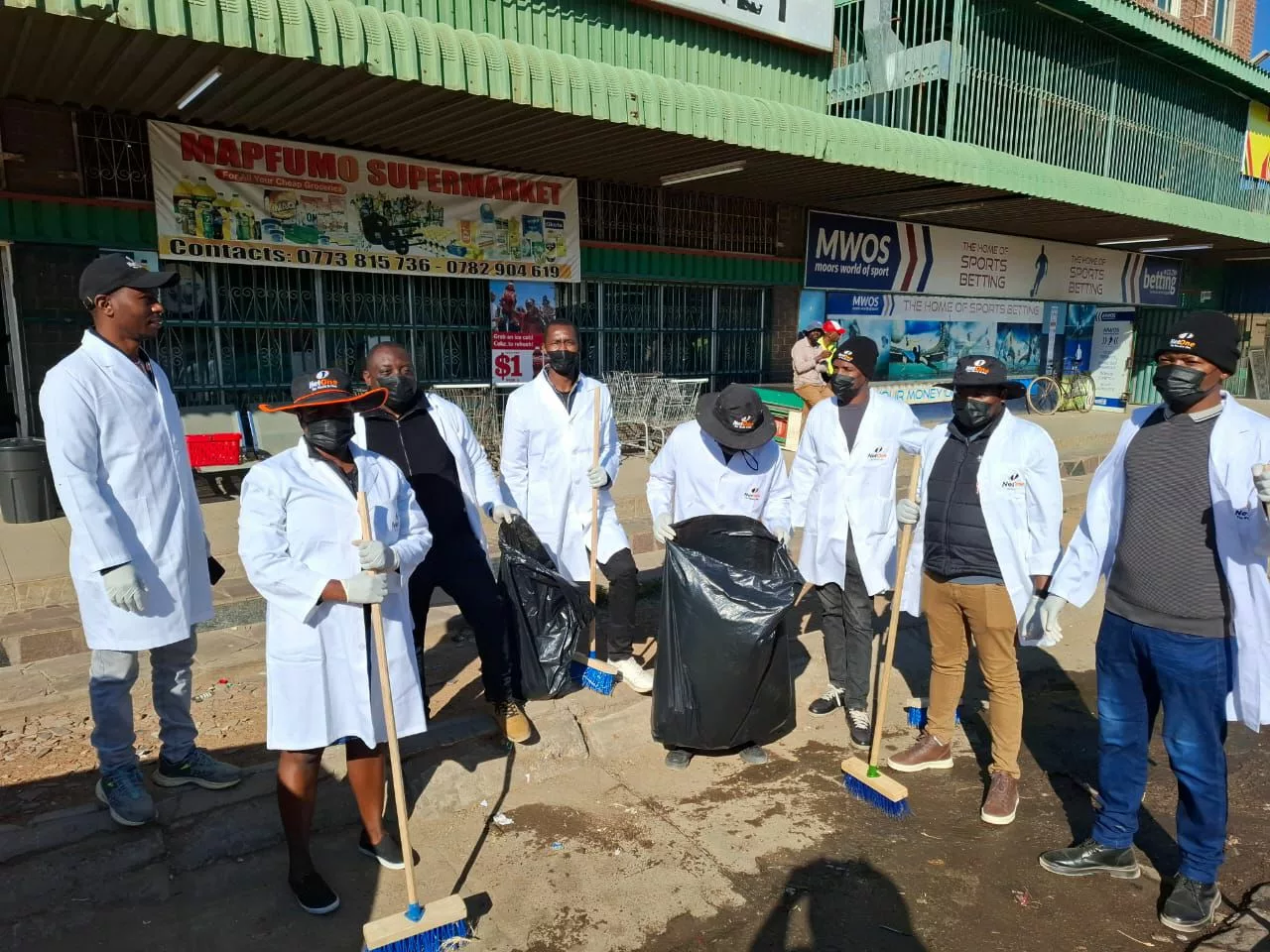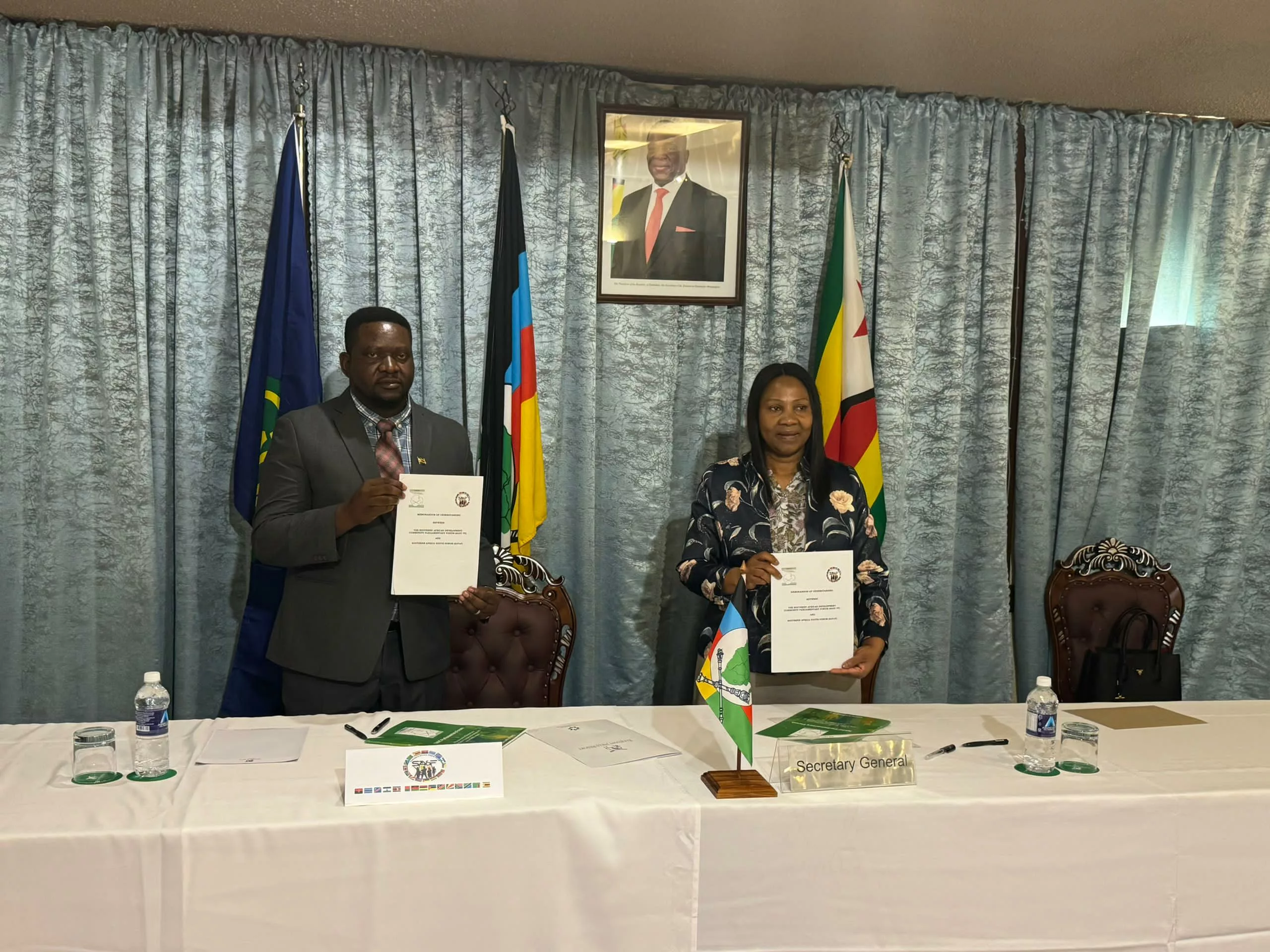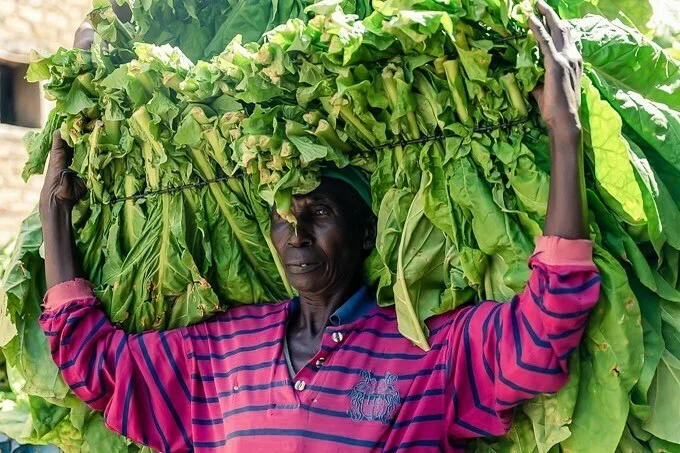|
Getting your Trinity Audio player ready...
|
As stakeholders trudge towards the next phase post the Malabo Declaration on Africa Accelerated Agricultural Growth and Transformation, the participation of vulnerable groups like women and youth is critical in the attainment of food security.
Speaking on the need for strategies to increase food security and nutrition and reduce poverty and the commitment to agricultural transformation under the African Union (AU) CAADP Malabo declaration on agricultural growth and transformation, Mrs. Estherine Fotabong, the Director of Programme Innovation and Planning of the African Union Development Agency (AUDA-NEPAD) stressed the necessity to get Africa to have an inclusive and sustainable development approach.
“Agriculture is key to the achievement of the aspirations espoused in the African Union’s Agenda 2063. The sector should create jobs for women and youths in order to transform economies. There is a need to leave no one behind, in line with the 2030 Agenda for Sustainable Development, especially marginalised groups like women and youths as we seek to address capacity and fiscal constraints to bring the implementation of the Agenda 2063 together as a collective,” Mrs. Fotabong said.
During a panel discussion at the high-level policy meeting in Dakar, Senegal today on addressing special constituents’ interests and needs in National Agricultural Investment Plans (NAIPs) implementation with a focus on youths, rural women, and SMEs business entities including farmers, Dr. Rudo Makunike, the Head of Technical Cooperation and Advisory Services Division of the African Union Development Agency (AUDA-NEPAD) said as stakeholders move towards the next phase post-Malabo, it’s important to take into consideration some important key drivers for Africa’s agriculture.
“Whatever planning we do should be guided by the African Union’s Agenda 2063 that was adopted as a blueprint for the development of Africa We Want. The Agenda 2063 is quite clear on the importance of women, youth, and smallholder farmers in the sustainable development of the continent. Africa’s youthful population is a launchpad for the continent to reap the demographic dividend. Thus the employability of youths and women in the agricultural sector is of paramount importance,” Dr. Makunike said.
Agriculture and rural development continue to be key strategic focuses highlighted in Agenda 2063. Following the “Malabo Declaration”, Dr. Makunike said there is a need to revisit how well stakeholders have done in terms of vulnerable and strategic groups like the women and youth.
“The design of the next phase post-Malabo should have concrete agricultural transformation systems based on ownership at the national level making sure small-scale farmers, youth and women are not left behind,” she added.
Sub-Saharan Africa has the most youthful population in the world, with over 60% below the age of 25. In 2015 – 226 million youth aged 15-24 lived in Africa. By 2030, the number is projected to increase by 42%. By 2055, it is expected to more than double from current levels.
However, the high unemployment amongst the youth means this is a resource that remains largely untapped, especially in agriculture, hence the need for concerted efforts to bring on board the youth to revitalise African food systems.
With the slow structural transformation and limited job creation, agriculture and agribusiness-related activities remain vital sources of income and employment generation for youth. However, there is a low level of interest by youth due to the harsh realities of African agriculture.
According to the African Economic Outlook of 2012 report, only 2% of African university graduates specialise in agriculture, and only 4% of the graduates study engineering, manufacturing, and construction. This is despite the fact that agriculture and agribusiness-related activities remain vital sources of income and employment generation for youth.
But, the participation of young people in sub-saharan Africa’s agricultural transformation will not be automatic. There is a need to change the narrative and make African agriculture attractive again. This can be achieved through investing in technology such as precision farming – the use of drones and digital technology.
Skills development and employment for youth are a current challenge for African countries – for their economic development growth and social stability. The lack of educational and meaningful economic opportunities forces many young people to search for a more prosperous future elsewhere.
Dr. Makunike said programmes for technical and vocational education and training (TVET) should be at the fore of consideration. She gave an example of the AUDA-NEPAD GiZ-supported TVET programme that has promoted the occupational prospects of young Africans through the support of innovative skills development programs.
Coupled with this, attracting young people to the agriculture sector for sustained growth and job creation should be a key focus post-Malabo. AUDA-NEPAD through the Agriculture Technical and Vocational Education and Training (ATVET) is partnering with the private sector to offer training along the agriculture value chains.
Speaking during the same panel discussion, Mr. Ntiokam Divine, the Founder and Executive Director of Climate Smart Agriculture Youth Network Global (GCSAYN) said in these uncertain times in which food security is one of the main world challenges, during a climate, environmental and political crisis, the issue of achieving the goals of the 2030 Agenda, especially those related to providing the basic conditions for a decent life, becomes crucial.
He encouraged stakeholders in Africa to ensure the conservation of the continent for future generations.
“As one of the contributors to the SDG goals-setting process, I am familiar with our vision and despite all the challenges that the past years have brought, I am deeply convinced that the realization of Agenda 2030 and the Malabo Declaration is possible if all of us work together. We, the African Youth working in agriculture and food systems, appreciate very much the efforts African Governments and International institutions are making to achieve the 2030 agenda and the Malabo commitments, and we would like to contribute actively to the implementation of the Action Plan,” he said
Africa has a youthful population with great potential. Furthermore, according to the International food policy Research Institute (IPFRI), over this decade, 21 million people will join the working-age population every year in Africa south of the Sahara. This is why there is a need to empower decision-makers in shaping the future of the continent, but to do it right, effective support should reach youth directly, including the development of their skills in several key areas, including production, processing, and trading using climate-smart techniques, business development and easy access to finance.
Apart from the climate crisis, and the uncertainty it brings, the soaring energy costs are causing serious challenges to smallholder farmers, with a steep increase in the prices of all food commodities. This is affecting us seriously, the younger generation which is trying its best to succeed in the agri-food sector. The increase in the costs of inputs, transport, and food to name a few, is making a healthy and nutritionally adequate diet inaccessible to the most vulnerable people in rural areas and makes it more difficult to apply some of the climate-smart technologies.
“Young female and male farmers and small producers are struggling more and more with the challenging new circumstances, and this is evident in our work with them, where we provide support to implement climate-smart practices in their farming and processing. More and more of them are working towards adopting climate-smart agriculture practices, however, we are in huge need of effective support that reaches us directly.
“Time is short, every decision and every action is crucial, and that’s why I invite you to give youth a seat at the table and a true voice in forging a roadmap to sustainability. Give us the responsibility and the support to allow us to implement actions that will improve our lives and all life on this planet. Please don’t leave us behind, make sure that you create the necessary economic opportunities for us all, in all corners of our African continent,” Mr. Divine said.


